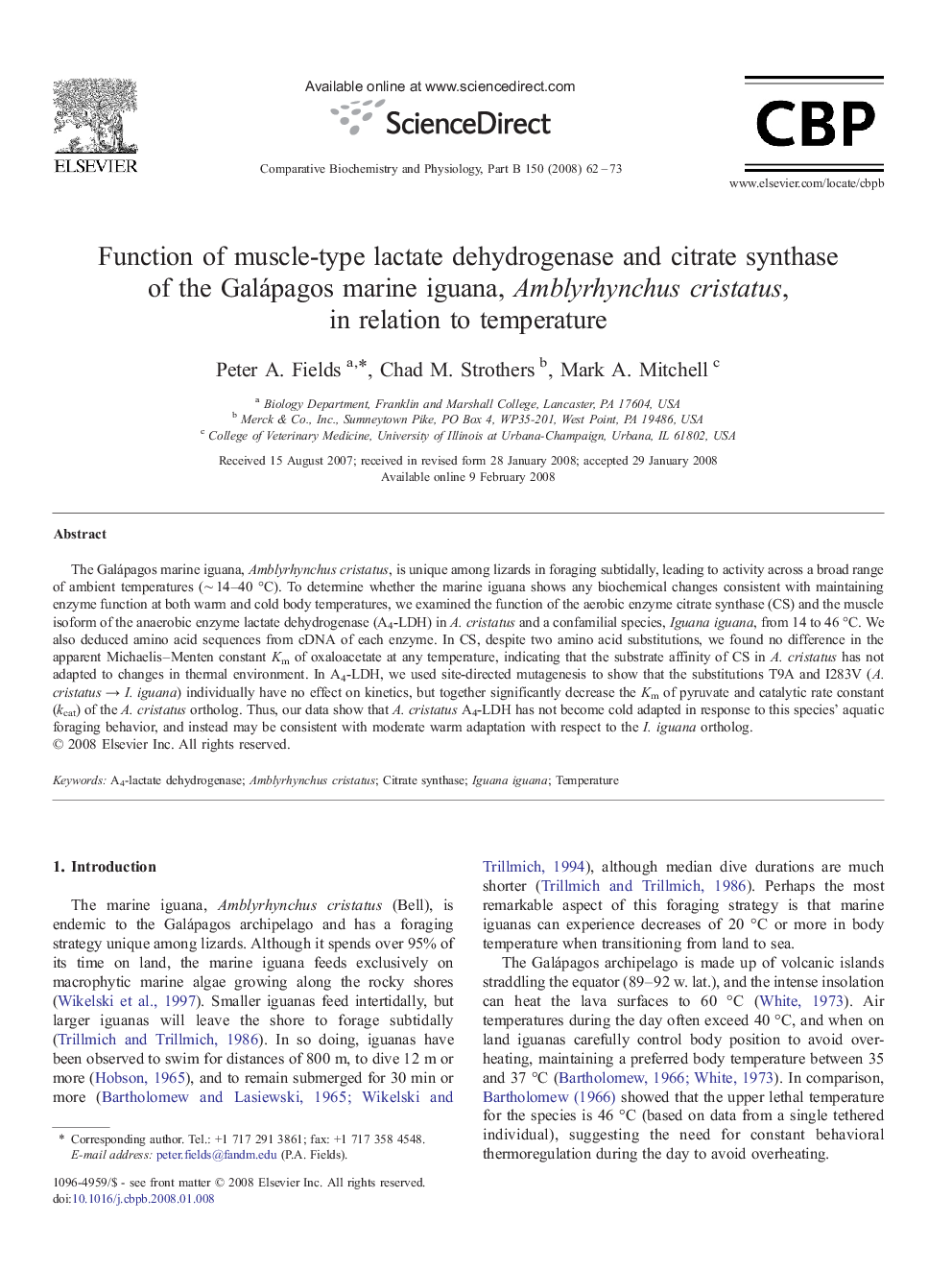| Article ID | Journal | Published Year | Pages | File Type |
|---|---|---|---|---|
| 1975958 | Comparative Biochemistry and Physiology Part B: Biochemistry and Molecular Biology | 2008 | 12 Pages |
The Galápagos marine iguana, Amblyrhynchus cristatus, is unique among lizards in foraging subtidally, leading to activity across a broad range of ambient temperatures (∼ 14–40 °C). To determine whether the marine iguana shows any biochemical changes consistent with maintaining enzyme function at both warm and cold body temperatures, we examined the function of the aerobic enzyme citrate synthase (CS) and the muscle isoform of the anaerobic enzyme lactate dehydrogenase (A4-LDH) in A. cristatus and a confamilial species, Iguana iguana, from 14 to 46 °C. We also deduced amino acid sequences from cDNA of each enzyme. In CS, despite two amino acid substitutions, we found no difference in the apparent Michaelis–Menten constant Km of oxaloacetate at any temperature, indicating that the substrate affinity of CS in A. cristatus has not adapted to changes in thermal environment. In A4-LDH, we used site-directed mutagenesis to show that the substitutions T9A and I283V (A. cristatus → I. iguana) individually have no effect on kinetics, but together significantly decrease the Km of pyruvate and catalytic rate constant (kcat) of the A. cristatus ortholog. Thus, our data show that A. cristatus A4-LDH has not become cold adapted in response to this species' aquatic foraging behavior, and instead may be consistent with moderate warm adaptation with respect to the I. iguana ortholog.
